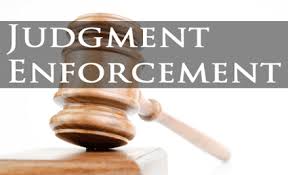
 Florida’s garnishment law contains detailed procedural requirements and specific deadlines within which a creditor, debtor and garnishee must file and serve specific pleadings and other documents. A judgment creditor must be aware and alert to these procedures in order to ensure that the creditor does not lose substantive rights, and in order to take prompt advantage of inaction by the debtor and/or garnishee.
Florida’s garnishment law contains detailed procedural requirements and specific deadlines within which a creditor, debtor and garnishee must file and serve specific pleadings and other documents. A judgment creditor must be aware and alert to these procedures in order to ensure that the creditor does not lose substantive rights, and in order to take prompt advantage of inaction by the debtor and/or garnishee.
A judgment creditor has a right to a writ of garnishment as to any debt due to the judgment debtor from a third person; and any of the debtor’s tangible or intangible personal property in the possession of a third person. In order to be subject to garnishment, a debt owed by a third person to the judgment debtor must be absolute and without contingency. A judgment creditor may successfully garnish a joint bank account to the extent of the judgment debtor’s interest in same, but may not garnish an account held by the debtor and his/her spouse as tenants by the entireties (unless the creditor has a judgment against both spouses).
Prior to October 1, 1993, the State, its agencies and subdivisions were immune from garnishment. Beginning October 1, 1993, however, a debtor’s status as an employee of the State or its agencies or political subdivisions does not preclude a judgment creditor’s right to garnish the debtor’s wages. The garnishment must arise, however, as a result of a contract, a loan, a transaction, a purchase, a sale, a transfer, or a conversion occurring on or after October 1, 1998.
A judgment creditor may obtain a continuing writ of garnishment as to a judgment debtor’s employer, providing for periodic payment to the creditor of a permissible portion of the debtor’s salary or wages as they become due.
The garnishee becomes liable to the judgment creditor for all debts due to the garnishee and any property of the debtor in the garnishee’s control from the time the writ is served to the time the garnishee serves its answer. The garnishee must report any such debt or property in its answer and must retain any deposit, account, or tangible or intangible personal property of the debtor. (Limitation: the garnishee cannot retain assets equal in value to more than twice the judgment amount and/or the amount stated in the judgment creditor’s writ of garnishment). Once a bank account has been garnished the bank must retain the depositor’s funds in compliance with the writ. The bank may not pay certain checks out of the garnished account, regardless of whether the checks predate the service of the writ of garnishment.
Dealing with a judgment and attempting to enforce it through garnishment is a complicated process that is best done with the consultation of an experienced attorney. Call Wetherington Hamilton today to schedule your consultation.

